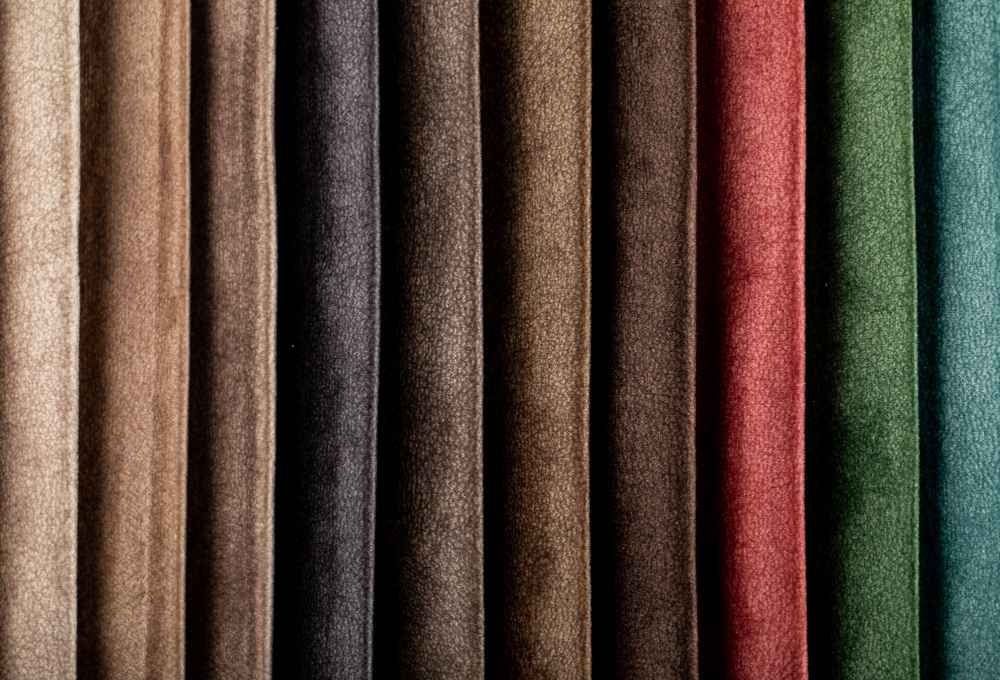
The furniture industry is experiencing a green revolution, and sustainable upholstery fabrics are at the heart of this transformation. As environmental consciousness grows among British consumers, the demand for eco-friendly furniture options has never been higher. The good news is that the UK market now offers an impressive range of sustainable upholstery fabrics that don't compromise on quality or style.
What Makes Upholstery Fabric Sustainable?
Sustainable upholstery fabric goes beyond just using organic materials. It encompasses the entire lifecycle of the fabric, from raw material sourcing to manufacturing processes and end-of-life disposal. These fabrics are typically made from renewable resources, require minimal water and energy during production, and are produced under fair labor conditions.
The key characteristics include biodegradable or recyclable materials, low chemical usage during production, minimal environmental impact during manufacturing, and durability that extends the product's lifespan. Many sustainable fabrics also feature certifications from recognized environmental standards organizations.
Types of Sustainable Upholstery Fabrics Available
The UK market offers several categories of sustainable upholstery options. Organic cotton remains popular due to its breathability and comfort, while hemp provides exceptional durability and naturally resists mold and bacteria. Linen, derived from flax plants, offers a luxurious feel with minimal environmental impact.
Recycled polyester made from plastic bottles has gained traction, giving new life to waste materials. Wool from ethically managed farms provides natural fire resistance and temperature regulation. Additionally, innovative materials like Tencel, made from sustainably sourced wood pulp, offer silk-like properties with eco-friendly credentials.
Organic Cotton and Natural Fiber Options
Organic cotton upholstery fabric represents one of the most accessible sustainable options in the UK. Unlike conventional cotton, organic varieties are grown without synthetic pesticides, herbicides, or genetically modified seeds. This approach protects soil health, reduces water pollution, and creates safer working conditions for farmers.
Natural fiber alternatives extend beyond cotton to include jute, which provides a rustic aesthetic perfect for casual furniture pieces. Bamboo fiber, though requiring careful processing to maintain sustainability credentials, offers natural antimicrobial properties and exceptional softness.
Recycled and Upcycled Fabric Solutions
The circular economy concept has revolutionized upholstery fabric production. Recycled polyester fabrics, created from post-consumer plastic bottles, offer durability comparable to virgin materials while diverting waste from landfills. These fabrics often feature stain resistance and easy maintenance properties.
Upcycled fabrics take sustainability further by transforming textile waste into new upholstery materials. Deadstock fabrics from fashion industry overproduction find new purpose in furniture applications, reducing waste while providing unique design opportunities.
Certifications to Look For
When shopping for sustainable upholstery fabric in the UK, specific certifications help identify genuinely eco-friendly options. The Global Organic Textile Standard (GOTS) ensures organic fiber content and environmental criteria throughout the supply chain. OEKO-TEX Standard 100 tests for harmful substances, while Cradle to Cradle certification evaluates overall sustainability performance.
The Forest Stewardship Council (FSC) certification applies to wood-based fibers like Tencel. Additionally, the EU Ecolabel indicates products meeting strict environmental criteria throughout their lifecycle.
Where to Find Sustainable Options in the UK
The UK's sustainable upholstery fabric market has expanded significantly across multiple channels. Major cities like London, Manchester, and Birmingham host specialized eco-friendly textile showrooms. Many traditional fabric retailers have introduced sustainable lines to meet growing demand.
Online platforms have made sustainable options more accessible, offering detailed product information about environmental credentials. Trade shows and design events increasingly feature sustainable textile exhibitions, providing opportunities to examine fabric quality firsthand.
Cost Considerations and Value
Sustainable upholstery fabrics often carry higher upfront costs compared to conventional alternatives, reflecting the additional care taken in their production. However, these fabrics frequently offer superior durability, potentially reducing long-term replacement costs.
The value proposition extends beyond monetary considerations to include health benefits from reduced chemical exposure and the satisfaction of supporting environmental responsibility. Many sustainable fabrics also age beautifully, developing character over time rather than simply wearing out.
Care and Maintenance Tips
Proper care extends the lifespan of sustainable upholstery fabrics, maximizing their environmental benefits. Natural fiber fabrics generally require gentler cleaning methods, often preferring professional cleaning over harsh chemical treatments. Regular vacuuming and prompt attention to spills help maintain appearance and prevent permanent staining.
Many sustainable fabrics benefit from natural cleaning solutions like mild soap and water. Avoiding excessive heat during cleaning and allowing proper drying time helps preserve fiber integrity. Professional cleaning services specializing in eco-friendly methods are increasingly available across the UK.
Conclusion
The availability of sustainable upholstery fabric in the UK has grown tremendously, offering consumers genuine alternatives to conventional options. From organic cotton to recycled polyester, the range of materials ensures that environmental consciousness doesn't require sacrificing style or quality.
As the market continues evolving, sustainable options are becoming more accessible and competitively priced. For those seeking quality sustainable upholstery fabrics, you can consider Yorkshire Fabric Shop, which serves as an online destination for upholstery fabrics. Located in the United Kingdom, they offer a curated selection that balances environmental responsibility with the design flexibility modern consumers demand.
The transition to sustainable upholstery represents more than a trend, it's a necessary evolution toward more responsible consumption patterns that benefit both our homes and our planet.
Frequently Asked Questions
Are sustainable upholstery fabrics as durable as conventional options?
Yes, many sustainable fabrics actually exceed conventional options in durability. Natural fibers like hemp and organic cotton are inherently strong, while recycled polyester maintains the durability of virgin materials. Proper care and maintenance can make sustainable fabrics last even longer than traditional alternatives.
How much more expensive are sustainable upholstery fabrics?
Sustainable options typically cost 20-40% more than conventional fabrics initially. However, their superior durability and timeless appeal often provide better long-term value. The price gap continues to narrow as sustainable production scales up and becomes more efficient.
Can I find sustainable fabrics that match my existing decor?
Absolutely. The sustainable upholstery market now offers extensive color palettes and patterns. Many manufacturers have developed eco-friendly dyes and printing processes that rival conventional options in vibrancy and design variety.
Do sustainable fabrics require special cleaning methods?
Most sustainable fabrics can be maintained with gentle, eco-friendly cleaning methods. While some natural fibers may require professional cleaning, many can be spot-cleaned with mild, natural solutions. Always check manufacturer care instructions for specific guidance.
How can I verify that a fabric is genuinely sustainable?
Look for recognized certifications like GOTS, OEKO-TEX, or Cradle to Cradle. Research the manufacturer's sustainability practices and transparency about their supply chain. Genuine sustainable brands are typically open about their production methods and environmental impact measurements.
You can read: Who Are the Largest Fabric Wholesalers in the UK?

0 Comments
Post Comment